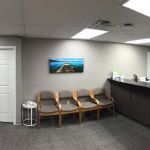Why I Hesitated to Visit the Dentist With a Cold Sore
A few months ago, I had a routine dental cleaning scheduled. Just two days before the appointment, I woke up with that familiar tingling on my lip—like clockwork, a cold sore was emerging. I stared at it in the mirror, unsure what to do. I’d waited months for this slot. Should I go to the dentist with a cold sore? The question wasn’t just about me—it was about my hygienist, my dentist, and anyone else I’d be near. That tiny blister carried more weight than I expected.
This wasn’t my first cold sore, and like most people who get them, I’ve become somewhat of an amateur virologist. Caused by the herpes simplex virus type 1 (HSV-1), cold sores are highly contagious, especially during the blistering phase. Still, I wondered: was this something dental professionals expect? Would they even treat me with an active sore? I decided to find out—both for myself and anyone else asking the same thing.
1. What Exactly Is a Cold Sore and Why It Matters at the Dentist
Cold sores, sometimes called fever blisters, are small fluid-filled blisters that usually appear on or around the lips. They’re caused by HSV-1 and are most contagious when they’re open and weeping, though even the tingle stage can carry the virus. According to the American Dental Association, dental procedures can risk spreading the virus due to the close contact and aerosol-generating tools used during treatment.
In a dental environment, everything from suction tubes to polishers can potentially come into contact with infected saliva or skin. While dentists follow strict sterilization protocols, the risk is still there. It’s not just about the provider catching the virus—dental work can actually worsen a cold sore or prolong healing due to the stretching of the lips and trauma to the area.
2. My Call to the Dental Office and What They Told Me
When I called my dental office, the receptionist didn’t hesitate: “If the sore is active and visible, we usually ask patients to reschedule. It’s for your safety and ours.” She explained that they prefer to see patients when lesions are completely healed or in the very late stages of scabbing. She was kind and nonjudgmental, even offering to move my appointment within the week if the sore cleared up.
This response aligned with what I later learned online. Many dental offices have policies in place to delay non-emergency procedures if a patient has an active cold sore. For invasive treatments—like fillings, root canals, or periodontal work—this is especially important. However, for urgent needs, they might still see you using extra precautions like face shields, antiviral wipes, and barriers.
3. How Cold Sores Can Affect Dental Treatment
The biggest problem with dental work and cold sores is irritation. Dental tools stretch and press on the lips, which can pop a sore or increase its size. In my case, the sore was right on the corner of my mouth—the worst possible spot. I couldn’t even eat a sandwich comfortably, let alone hold my mouth open for a full cleaning.
There’s also the issue of viral shedding. Dentists work inside your mouth, and cold sores live near the surface. During certain procedures, ultrasonic tools or high-speed drills can aerosolize saliva droplets, potentially spreading virus particles into the air or onto surfaces. While sterilization is rigorous, there’s always a tiny risk. No dentist wants to be responsible for a staff member—or another patient—catching HSV-1 on their watch.
4. Times When Going to the Dentist With a Cold Sore Is OK
Emergency dental issues can’t always wait. When you're dealing with unbearable pain, swelling, or infection, most dentists will still treat you—but with additional precautions. I spoke to a friend who works in an oral surgery clinic in Denver. She told me they’ll use antiviral disinfectants and request that patients wear masks until just before the procedure starts.
Sometimes, your dentist might even prescribe an antiviral like acyclovir or valacyclovir to help minimize viral activity ahead of time. This is particularly useful if you know you’re prone to outbreaks and have a big procedure coming up. Preventive medication can lower the chance of sores appearing or help them heal faster.
5. What to Do If You Get a Cold Sore Before Your Appointment
If you wake up with a cold sore before your dental visit, here’s what you should do:
- Call your dentist right away. They’ll assess whether you should still come in or reschedule.
- Take antiviral medication if prescribed. The sooner you take it, the more you can reduce severity and duration.
- Apply over-the-counter treatments. Creams like docosanol or ointments with benzocaine can reduce discomfort.
- Avoid touching the sore. This helps prevent spreading the virus to other parts of your body or other people.
- Use lip balm with sunscreen. Sunlight is a known trigger for cold sores—especially after dental procedures when lips can be more sensitive.
My dentist appreciated the heads-up, and we rescheduled the cleaning for a week later. By then, the sore had scabbed over and I felt more comfortable knowing I wasn’t putting anyone at risk—or aggravating the sore further.
6. How I Now Plan Around My Cold Sore Triggers and Dental Appointments
After that experience, I became more mindful of what triggers my cold sores—stress, dehydration, and even sun exposure are big culprits for me. I’ve started scheduling my dental visits at times when my stress levels are low and I’m well-rested. I also keep antiviral meds on hand for the first signs of tingling, especially if I have a medical appointment coming up.
It’s also worth noting that many people don’t realize they carry HSV-1 until they have their first outbreak—often triggered by dental or surgical trauma. If you’ve never had a cold sore before but develop one after a dentist visit, it could be your first outbreak. In those cases, it’s a good idea to talk with both your dentist and your primary care provider for guidance on managing future episodes.
Now, whenever I go in for a cleaning or checkup, I give myself a once-over in the mirror first. If there’s any sign of a flare-up, I call the office. Cold sores might be common, but being responsible about them shows respect for both the professionals taking care of you and yourself. My dental team has always appreciated the honesty, and it’s led to better care all around.







 Braces By Dr. Ruth4.0 (1052 review)
Braces By Dr. Ruth4.0 (1052 review) AAA Dental Centers3.0 (20 review)
AAA Dental Centers3.0 (20 review) Max J. Weber, DDS0.0 (0 review)
Max J. Weber, DDS0.0 (0 review) Woodbury Dental Associates4.0 (231 review)
Woodbury Dental Associates4.0 (231 review) Gerald Middleton, DDS5.0 (284 review)
Gerald Middleton, DDS5.0 (284 review) Smile Central Dental4.0 (506 review)
Smile Central Dental4.0 (506 review) The Importance of Oral Health Education During Pregnancy for a Healthy Pregnancy
The Importance of Oral Health Education During Pregnancy for a Healthy Pregnancy Best Tips for Brushing Your Teeth Properly for Healthy Gums: Essential Techniques for Oral Health
Best Tips for Brushing Your Teeth Properly for Healthy Gums: Essential Techniques for Oral Health Why Skipping Dental Checkups Can Lead to Bigger Oral Health Problems
Why Skipping Dental Checkups Can Lead to Bigger Oral Health Problems Advantages of Porcelain Dental Restorations
Advantages of Porcelain Dental Restorations How Can Diabetes Cause Tooth and Gum Problems? Preventing and Managing Oral Health Issues
How Can Diabetes Cause Tooth and Gum Problems? Preventing and Managing Oral Health Issues Healthy Habits for Promoting Good Oral Health and Hygiene: Tips for a Healthy Smile
Healthy Habits for Promoting Good Oral Health and Hygiene: Tips for a Healthy Smile